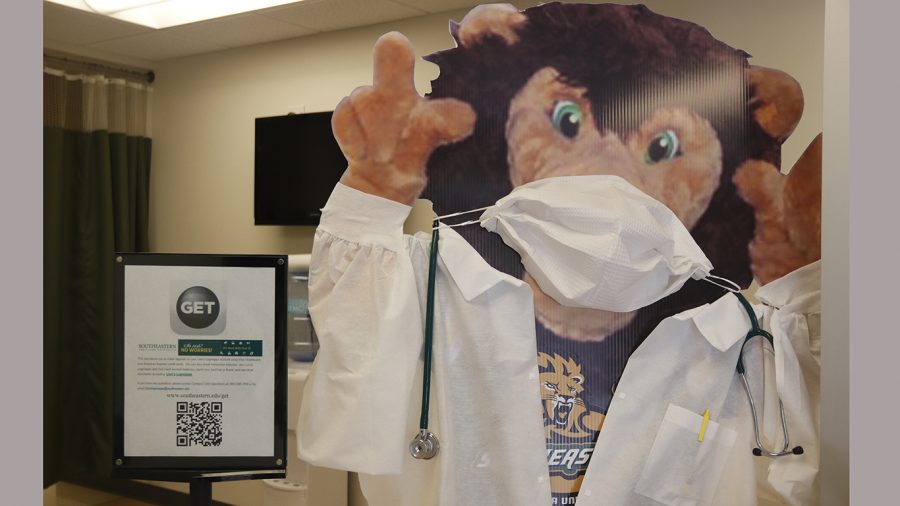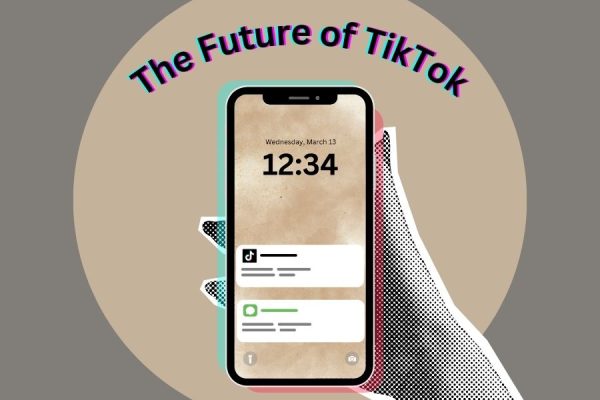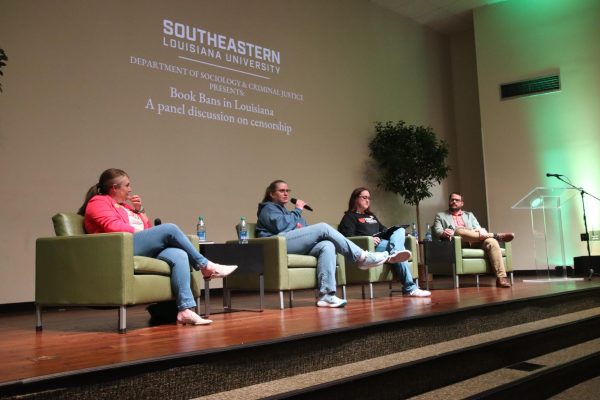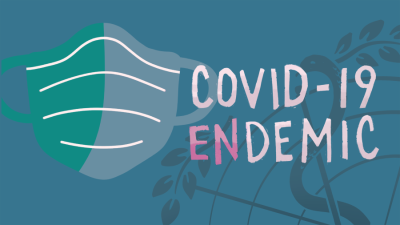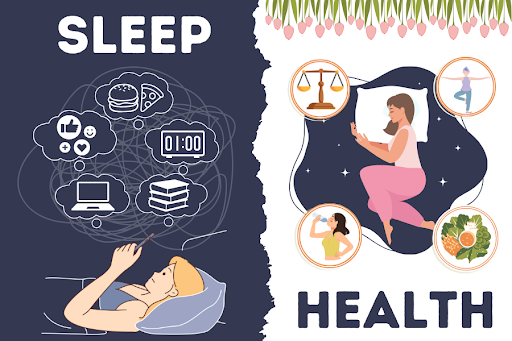Students and faculty share their experiences dealing with the coronavirus
Brynn Lundy/The Lion's Roar
The Roomie poster in the University Health Center has a mask on. According to the university, as of Sept. 4, a total of 35 students tested positive for the novel coronavirus.
Ever since its arrival in the United States in January, the coronavirus has impacted the daily lives of many people, including those within the campus community.
Prior to the start of the fall semester, several students and faculty contracted COVID-19 and were required to quarantine.
Sam Englehart, a freshman criminal justice major, shared that he tested positive after an outbreak at Tigerland in Baton Rouge. He decided to get tested even though he was not showing any symptoms.
“I tested positive mid-June and tested negative a week later,” said Englehart. “I never had symptoms, but I read an article about a COVID outbreak at JL’s Place in Tigerland after the night I was there, so I decided to go get tested.”
Despite testing positive, Englehart mentioned that he was not too concerned about contracting the virus in the first place.
“I didn’t care a whole lot because I knew I was going to end up getting it at one point, and it has not scared me since the start,” explained Englehart. “After I tested positive, I just stayed in my room for a week until I decided to go test again. It really sucked because I wasn’t sick and had to isolate myself from my friends and family for a week.”
Taylor Gautreaux, a junior middle school education major, received a COVID-19 diagnosis in early July, after getting back from a family beach trip. She said her symptoms felt like mild allergies. She got tested after her mom received a positive result.
“I was living in a missionary community at the time and we all quarantined together,” explained Gautreaux. “However, no one else showed symptoms. Five days after my positive test, the entire community tested negative, including me.”
Gautreaux said she was fully recovered before the Fall 2020 semester began. She described her recovery process.
“My recovery process was very quick,” said Gautreaux. “I drank lots of water, got lots of sunlight, took high doses of vitamin C and finished the antibiotics prescribed to me. I started feeling better within a week.”
Gautreaux described the precautions she is taking in her daily life and encouraged others to do the same.
“I am still continuing to wear a mask in public,” shared Gautreaux. “However, a mask alone cannot protect you from COVID-19. Taking supplements to boost your immune system, getting exercise and sunlight, eating a healthy diet and drinking water is essential for having good health.”
The virus has not only affected the lives of students. Clint Naquin, mobile equipment operator for the Sustainability Center, contracted the virus in July and decided to get tested after he began showing symptoms that were unfamiliar to him.
“It started with fever,” shared Naquin. “Just kind of aching, a little fatigue. I knew it was something different. It wasn’t anything common. Because of my job, I was like, ‘I think I’m going to go get tested.’”
After testing positive, Naquin revealed that he was told to treat his symptoms at home.
“Basically every day I had a new symptom,” said Naquin. “It just kept coming. I lost my taste. I lost my appetite. I had a recurring fever. It just kept going for a few days. When they said I was positive, I’m like ‘Well, how do I treat it at home?’ I didn’t know what I was going to get. I didn’t even have a cough yet.”
Naquin was not the only member of his family to get sick.
“My mom and my dad got it,” mentioned Naquin. “My wife got only a headache and a fever for two days. I ended up getting the worst of it, which I’m very thankful for because it would have been horrible to watch my loved ones have to go through that. I didn’t want them to go through exactly what I felt because that would have broke my heart and made me feel worse.”
Before returning to campus, Naquin had to make sure he was not showing any more symptoms so that no one else would be put at risk of contracting the virus.
“HR contacted me by email, and we conversed there,” explained Naquin. “Of course, they sent me the requirements to come back to work after.”
Even prior to the pandemic, Naquin was taking precautionary sanitation measures due to his job.
“When this whole thing started, I didn’t change my habits,” said Naquin. “I go to every building on campus. I’m always cautious. I’m always washing my hands. I was as cautious as I could be.”
Students and faculty are advised to continue self-monitoring for symptoms and to stay home if they think they have contracted COVID-19. They can also self-report here.
Your donation will support The Lion's Roar student journalists at Southeastern Louisiana University.
In addition, your contribution will allow us to cover our annual website hosting costs.
No gift is too small.


